Jul 10, 2025
Author:Amanda Lyu
It is quite frightening when your furry friend begins to breathe loudly all of a sudden. You are stroking your cat or watching them sleep, and suddenly you hear a strange snoring or wheezing sound. You wonder: Is this normal? Am I supposed to worry?
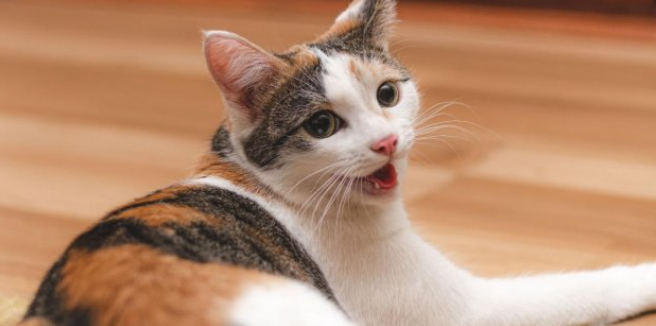
So, when you ask yourself why does my cat breathe loud, you are not the only one. This is something that many pet parents have experienced, and although in some cases, it is not something to be worried about, loud breathing may be an indication of a health problem. Being aware of the possible causes and knowing when to take action can be the difference between the well-being of your cat.
In this article, we will guide you on what noisy breathing in cats entails, some of the common causes, symptoms to observe, and some of the practical solutions that you can adopt at home and with your vet.
Noisy respiration or loud breathing is the result of a blockage or constriction somewhere in the respiratory tract of your cat. Loud breathing may sound like:
● Wheezing
● Snoring
● Gurgling
● Snorting
● Raspy or labored breaths
Vets usually divide it into two types:
● Stertor: Deep, snoring-like sounds that are usually brought about by blockages in the nose or throat
● Stridor: Rough sounds, which are usually a result of larynx or windpipe difficulties
Either way, your cat is making more effort to breathe, and that is not something that you should overlook.
The cause of a cat suddenly breathing heavily is an upper respiratory infection, which is analogous to a human cold. The infections may lead to inflammation and accumulation of mucus, which increases the difficulty of air through the nose and throat.
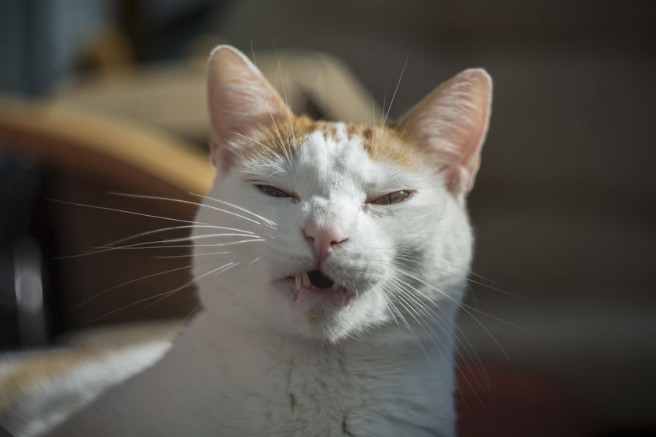
Signs:
● Sneezing
● Nose or eye running
● Lethargy
● Appetite loss
● Snoring in sleep
Solution
Ensure your cat has plenty of water and provide them with warm, moist air (a humidifier will assist), and isolate them from other pets so that the infection does not spread. Visit your vet if the symptoms persist for days.
Maintain a clean house. Here are useful tips about making a pet-friendly home hygienic.
Another cause of loud or labored breathing is feline asthma. This is a long-term disease that leads to inflammation of the airways, making them narrow and limiting airflow.
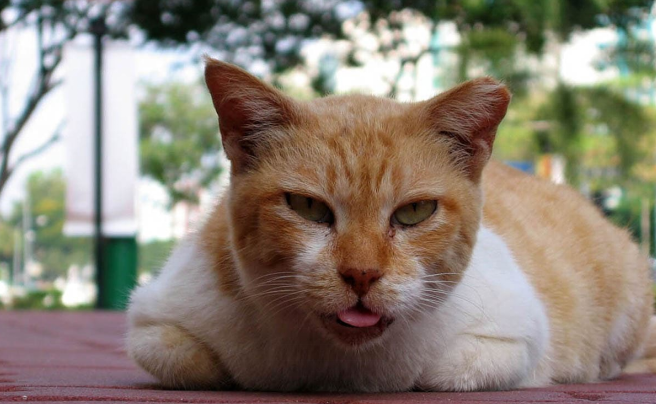
Signs:
● Wheezing
● Coughing
● Rapid breathing
● Open-mouth breathing
● Lethargy after activity
Solutions
A vet can prescribe bronchodilators or corticosteroids to decrease inflammation. You can assist your cat by reducing allergens in your house, like dust, smoke, or perfumes.
You can also change the cat litter to low-dust and install an air purifier to make the air more breathable for your cat.
Cats are inquisitive. That curiosity can even land them in trouble sometimes, such as inhaling grass, dust, or small toys. Noisy breathing or even choking may be caused by a foreign object in the throat or the nasal cavity.
Signs:
● Gagging or coughing
● Sudden loud breathing
● Pawing at the mouth or nose
● Drooling
Solution
It is an emergency; your cat is in distress or unable to breathe normally. Visit a vet as soon as possible. Keeping your cat’s environment clean and safe—as discussed in this cat-proofing guide—can help prevent accidents.
You know how cute the snorts and snores of a flat-faced breed such as Persian, Himalayan, or Exotic Shorthair are. Although they are adorable when they make these sounds, they may be indicators of Brachycephalic Obstructive Airway Syndrome (BOAS), a condition brought about by their distinctive skulls.
They are more susceptible to chronic breathing problems because these breeds have shorter nasal passages and compressed facial structures. The most common anatomical difficulties are narrow nostrils, a long soft palate, or a narrow windpipe, which all make the air flow more difficult.
Signs
● Continuous loud snoring
● Difficult or deep breathing
● Breathing with the mouth open
● Inability to withstand heat or exercise
Solution
At home, you should strive to minimize stress and prevent your cat from being exposed to high temperatures. Keep their surroundings cool, give them lots of water, and use the tips of this useful summer safety guide to keep them comfortable.
Just like human beings, cats can be allergic to their respiratory system. They can be seasonal or environmental products, or cigarette smoke.
Signs:
● Sneezing
● Itchy skin
● Red or watery eyes
● Wheezing
Solution
Minimize exposure to allergens. Vacuum regularly, do not use scented sprays, and use hypoallergenic pet products. A balanced diet will also boost the immune system. The tips are in this guide to healthy cat diets.

Heart disease in cats may result in fluid accumulation in the lungs (pulmonary edema) or around the lungs, and your cat will find it hard to breathe comfortably. This usually leads to deep, fast, or loud breathing and low energy.
Signs:
● Rapid breathing
● Coughing
● Lethargy
● Blue gums or tongue
● Loud, wet breathing
Solution
It is a health emergency. Veterinary care is essential. Cats who have a history of heart disease have regular vet checkups and are detected early. Cardiac stress can also be reduced by establishing a stress-free feeding routine.
Sometimes tumors or benign polyps may clog the nasal passages, sinuses, or throat, leading to congestion and loud breathing.
Signs:
● Nasal, noisy breathing
● Nasal discharge
● Facial swelling
● Loss of smell or appetite
Solution
Treatment usually includes surgical removal of the obstruction and possible other cancer treatment. Note the changes in the behavior of your cat, whether in eating or activity, and observe the abnormal symptoms.
Extra body weight puts pressure on the lungs and airways, which can restrict airflow and lead to loud breathing, especially during sleep or exercise.
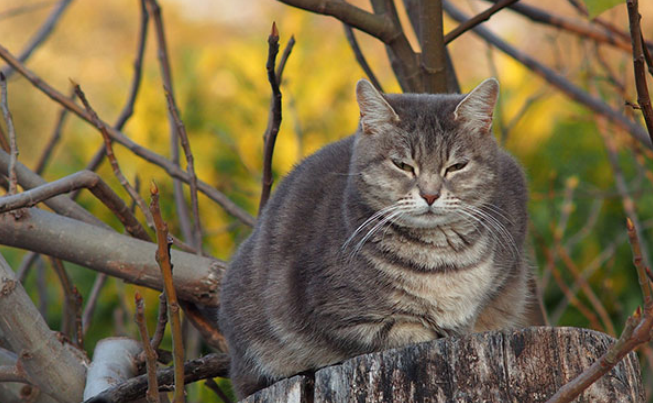
Signs:
● Loud snoring
● Heavy breathing after mild activity
● Weight gain
● Reluctance to move or jump
Solution
Gradual weight loss through portion control and play is the best solution. Wopet’s interactive feeding tips can make meals healthier and more engaging, encouraging natural movement and better digestion.
Cats are sensitive animals. In some cases, loud or fast breathing may be experienced after intense play or in stressful situations.
● Panting
● Wide eyes or flattened ears
● Tail flicking
● Hiding behavior
Solution
Let your cat relax and settle down. Make the home a stress-free zone with hiding places and quiet areas.
COPD is a progressive disease that limits the flow of air and leads to noisy breathing. It is less prent, but more prent in older cats.
Signs:
● Persistent wheezing
● Dyspnea
● Poor appetite
● Recurrent infections
Solution
With proper veterinary assistance, COPD can be treated. Symptoms can be significantly alleviated by keeping your home air clean and by purchasing air purifiers or humidifiers. The indoor air quality guide for pet owners will provide you with useful tips.
If you are still wondering why my cat is breathing so loudly, then the most appropriate thing to do is:
● Pay attention to such symptoms as the breathing rate, posture, or appetite.
● Watch out for any sneezing, coughing, or discharge.
● Eliminate dust, smoke, and allergens in the area of your cat.
● If the symptoms are severe or persistent, do not wait.
Prevention is also a very big factor. Whether it is establishing secure holiday conditions or a clean and comfortable feeding station, your everyday activities are more important than you imagine.
Why is my cat breathing so loudly? The solution may be as trivial as a mild allergy-or as severe as heart disease. This is why any change in breathing should be taken seriously. The earlier you diagnose the cause, the quicker you will get your cat to feel better.
By regularly monitoring, taking your cat to the vet, and making some smart home changes, you can improve the respiratory health of your cat. And keep in mind that a healthy cat is a happy cat, and little adjustments to their habitat and routine can do wonders.
Label:
Popular Post

What to Feed a Sick Dog With No Appetite? [2025 Guide]
May 16, 2023
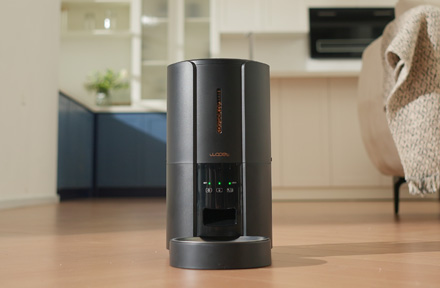
Troubleshooting Common Issues with Automatic Pet Feeders: Tips & Tricks for Pet Owners
Oct 26, 2023

Why Does My Cat Cough After Drinking Water? 8 Potential Reasons
Mar 13, 2023
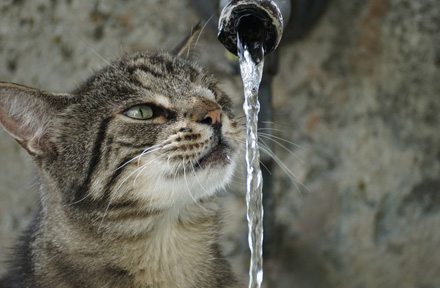
Why is My Cat Throwing up Water? Top 5 Causes Here
Feb 08, 2023
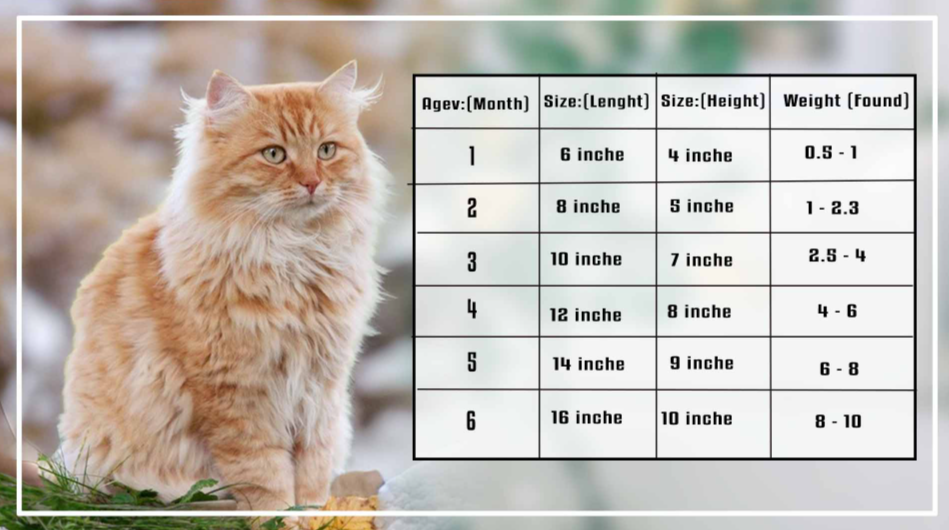
What is a standard Cat Weight chart by age Kg?
Mar 19, 2025
$99.99
$129.99
Copyright © 2025 WOPET. All Rights Reserved.